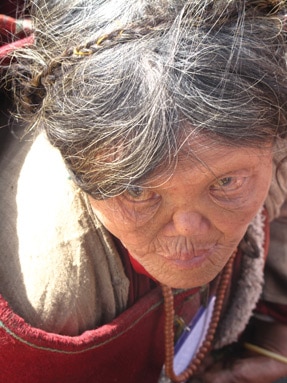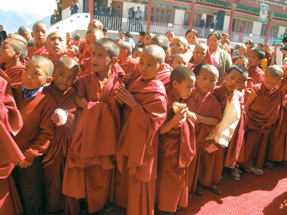|
The remote frontier town of Tawang, nestled in the Himalayan foothills in the northeastern Indian region bordering China-administered Tibet, is a flashpoint for the Sino-Indian frontier dispute. During the 1962 India China war, the town was seized by China, which lays a claim to vast regions of Arunachal Pradesh, having disavowed the so-called McMahon Line, a border drawn by India’s British colonial rulers in 1914. Tibetan leaders ceded the area to British-ruled India under the 1914 treaty, but after China seized Tibet in 1951, it refused to recognize India’s territorial claims to the region, asserting that it is a part of southern Tibet. Over the past century, Tawang has traded control among the British, Tibet, China and India.
It was thrust into the spotlight again recently after India allowed the Dalai Lama to visit the region, which China protested was a provocation and a challenge to its dominion over all of Tibet.
The word Tawang means a place blessed by a horse. The dominant tribe Monpas are of Mongoloid descent, who are believed to have immigrated from Bhutan and Tibet, but the circumstances under which the migration occurred is obscure.
Tawang is most reputed for its Tibetan Buddhist monastery, the largest monastery after the Potala Palace in Tibet’s capital Lhasa. It is also home to Tsangyang Gyatso, the Sixth Dalai Lama — the only Indian Dalai Lama. The influence of the current 14th Dalai Lama, who many Monpas believe is a reincarnation of the sixth, over Tawang is enormous. He appoints the powerful abbot of its monastery and his government-in-exile funds institutions in this area. During the Dalai Lama’s visit in November 2009, the Indian tricolor fluttered along with the Tibet flag everywhere.
The heart of the town lies around the majestic 400-year-old Tawang Monastery, which is perched atop a ridge and surrounded by thick clouds seems suspended from heaven, giving rise to its moniker, Galden Namgey Lhatse, or celestial paradise.
|
Tawang Land Of Monpas

